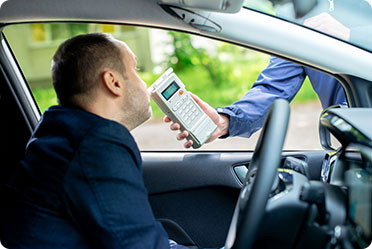
A common DUI question is whether the presence of chewing tobacco can affect breath testing results. It is true that chewing tobacco or smokeless tobacco can alter breath testing results. However, there are a number of reasons why this is the case.
Many brands of chewing tobacco contain raw ethyl alcohol. Ethyl alcohol is the same type of alcohol that is found in alcoholic beverages like wine, beer and hard liquor. Ethyl alcohol is also the type of alcohol that breath testing machines are programmed to detect.
Although chewing tobacco contains a miniscule amount of alcohol, a very small amount of raw alcohol can falsely elevate breath test results. Proportionately, raw alcohol in a person’s mouth will contain a much greater amount of alcohol molecules than the number of molecules contained in a breath sample. When a DUI suspect blows into the breath testing machine, the alcohol in the air sample from the person’s lungs will most likely mix with the raw alcohol in the person’s mouth from the chewing tobacco.
Many breath test machines are programmed to detect when raw alcohol is present in a DUI suspect’s mouth during testing. Those machines are supposed to alert the operator that raw mouth alcohol is present. Yet, these machines are fallible and often do not flag mouth alcohol. The result is that a DUI suspect’s alleged BAC will be falsely inflated.
Another issue concerns particles from tobacco products such as “dip” that typically remain in a person’s mouth, even after the bulk of it is spit out. At some point in time after initially chewing dip, the ethyl alcohol ingredient will dissipate in a person’s mouth. Nonetheless, the remnants of tobacco can still absorb and potentially trap alcohol that was consumed by a DUI suspect or regurgitated if a person suffers from reflux disease. Again, this trapped mouth alcohol can falsely elevate breath test readings.
Both New Jersey and Pennsylvania DUI laws specifically require the removal of tobacco from a suspect’s mouth before breath testing. Additionally, breath test operators are required by law in both states to observe a DUI suspect for 20 minutes prior to taking the first breath sample. This 20-minute period is supposed to be enough time for any mouth alcohol to totally dissipate.
Even though operators are required to follow these procedures rigorously, police officers can fail to abide by the laws concerning breath testing. If those procedures are not followed, then the breath testing results will not be admissible evidence. This factor could lead to dramatically reduced penalties for DUI or the charge ultimately being dismissed.
Leckerman Law focuses on safeguarding the
rights of individuals charged with DUI, DWI, DAI, and
other alcohol-related criminal offenses - Call Us Now For
NJ DWI (856) 429-2323 | For PA DUI (215) 496-9292